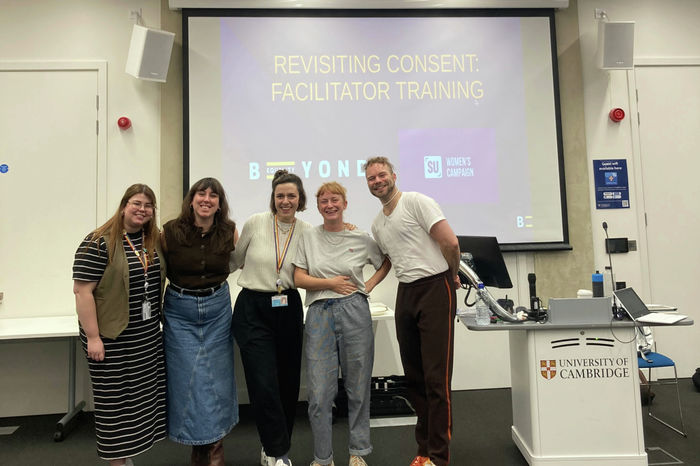‘We are all about opening doors’: the secret lives of Cambridge’s librarians
Ethan Cain speaks to Cambridge’s unsung heroes, the librarians

As Michaelmas arrives and everyone from the freshers to the Vice-Chancellor limbers up for a new academic year, few are busier than the librarians of the university. Updating reading lists, hiring new staff, planning library inductions – they would have been forgiven for not having time for a Varsity journalist asking irritating questions about their jobs. But librarians at the college, faculty and university level were kind enough to talk to me when I pitched an article about the secret lives of Cambridge librarians and the myriad and often unseen ways that they make so much of what happens at this university possible.
As elsewhere, librarians at Cambridge have the task of managing and organising their large collections in a way that is helpful to students and researchers – a task often complicated by the great age of the institutions in question. Aishah Olubaji and Lauran Richards of Magdalene College library tell me that parts of Magdalene’s in-house classification system were designed centuries ago based on the subjects that were studied by students at the time. It’s no surprise then that the project most preoccupying them at the moment is a reclassification of the collection to address past oversights and improve browsability.
“Other librarians remark on how their job is made unique by the unusual variety of material they find themselves working with”
Other librarians remark on how their job is made unique by the unusual variety of material they find themselves working with. Emily Dourish of the University Library (UL) gives as examples of her work over just the last few days: “investigating 19th century Chichewa hymn books”, helping to “organise MPhil seminars on Montaigne” and “discussing 17th century editions of Aphra Behn with a student in the Rare Books Room.”
I ask about the typical routes into becoming a librarian, but it seems there is no standard career path. Olubaji first worked as Early Career Librarian at an Oxford College while studying for a Library Master’s degree, while Jo Harcus of the philosophy library began by managing a collection of books and other teaching resources at a local council admin job. One commonality that Dourish highlights is, of course, a love of books: “A lot of people know it could be for them from quite a young age when they fall in love with their school library or local library.”
“We work in libraries because we love books… but we love helping people more”
Equally, Harcus points out that “we work in libraries because we love books […] but we love helping people more.” And when I ask what they wish more students knew about college librarians, all emphasised that they are here to help. “Many students start interactions with us at the help desk by saying ‘Sorry to bother you’”, say Olubaji and Richards, but “responding to your questions is what we are here to do, and you are not bothering us.” They also wish that more students knew about the variety of services that libraries can offer, which include not just support with study skills and signposting to useful material but also wellbeing support. Increasingly libraries are developing ‘support to address student mental health and accessibility needs’, for example, self-help reading materials or standing desk adaptors and writing slopes for use in the library.
As the Deputy Keeper of Rare Books at the UL (what a job title!) Dourish is especially keen to emphasise what is on offer for students with regards to the UL’s special collections. “The most challenging thing… is helping people overcome the feeling that these books aren’t ‘for them’.” The rare books and early manuscripts are not the exclusive preserve of those with postnominals: “The team here wants to share it all with you!”
According to Harcus, one of the challenges involved in being a librarian is the situations where they can’t help “for reasons beyond our control, such as copyright restrictions.” This is merely an opportunity to get creative, however: “With the help of the library hive mind, we can usually offer an alternative solution.”
Big, poorly-lit buildings with imposing architecture and strange names – Cambridge libraries can be intimidating places. But returning students and freshers alike can take comfort in the fact that the librarians who work there are eager and ready to make these scholarly spaces open and accessible to all. As Dourish puts it, “we are all about opening doors, not acting as gatekeepers.”
 News / Clare Hall spent over £500k opposing busway 24 December 2025
News / Clare Hall spent over £500k opposing busway 24 December 2025 Comment / The ‘class’ of Cambridge24 December 2025
Comment / The ‘class’ of Cambridge24 December 2025 News / Caius mourns its tree-mendous loss23 December 2025
News / Caius mourns its tree-mendous loss23 December 2025 Comment / Yes, I’m brown – but I have more important things to say22 December 2025
Comment / Yes, I’m brown – but I have more important things to say22 December 2025 News / Girton JCR publishes open letter expressing solidarity with Palestine25 December 2025
News / Girton JCR publishes open letter expressing solidarity with Palestine25 December 2025










